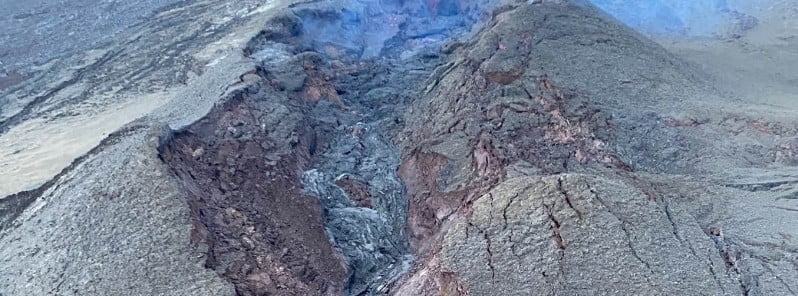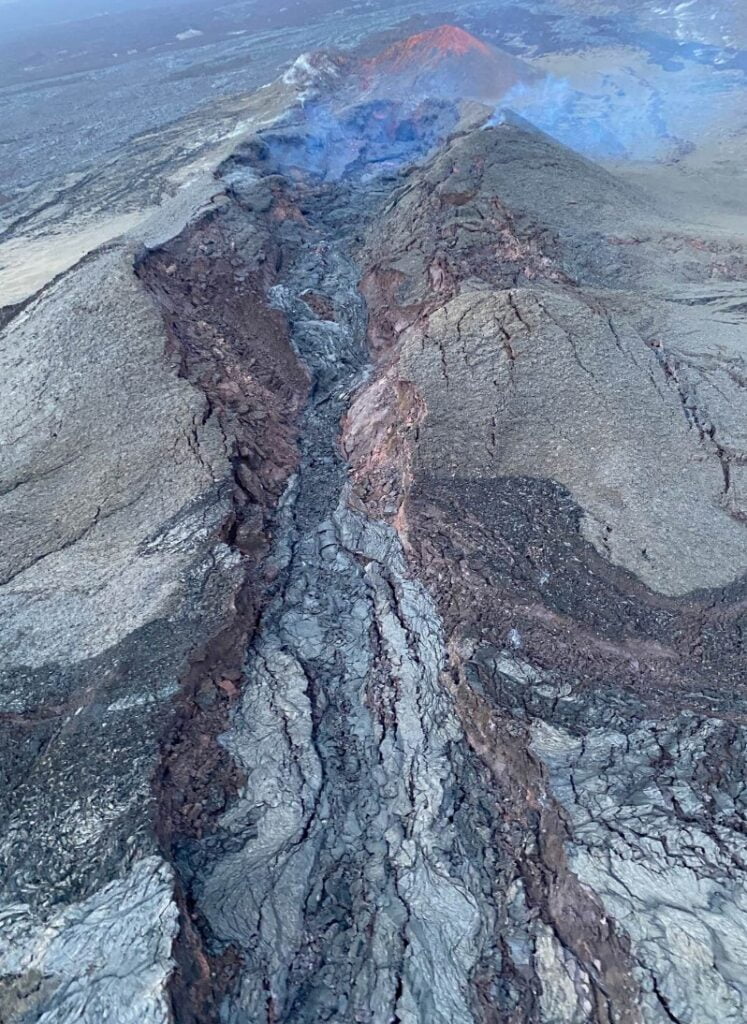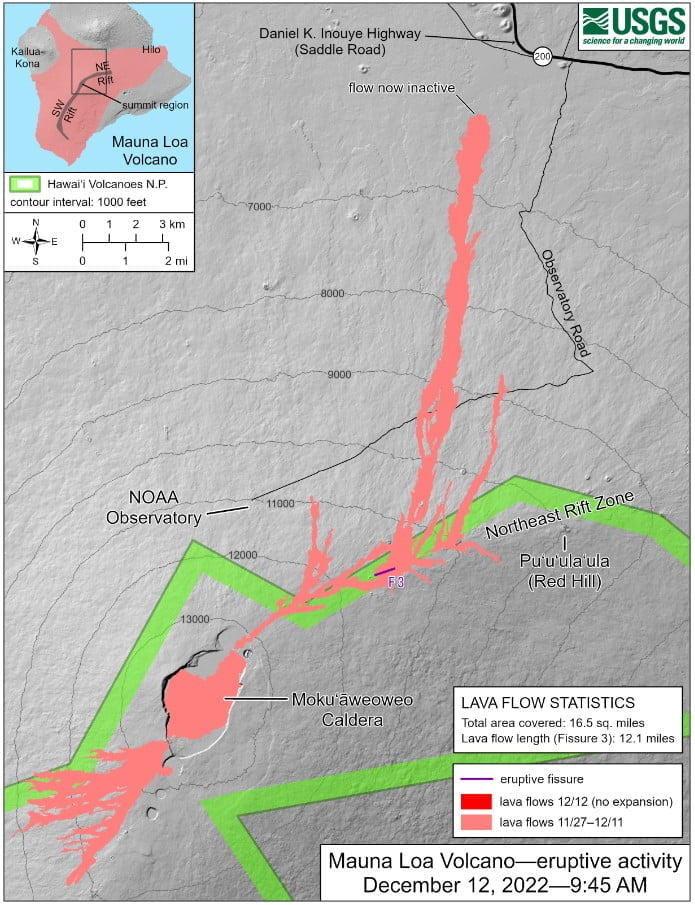Mauna Loa is no longer erupting, Hawai’i

The eruption at Mauna Loa that began on November 28, 2022, ended on December 13. This was the first eruption at the world’s largest active volcano since 1984 (VEI 0).
Lava supply to the fissure 3 vent on the Northeast Rift Zone ceased on December 10 and sulfur dioxide emissions have decreased to near pre-eruption background levels, the Hawaiian Volcano Observatory (HVO) reported at 17:17 UTC on December 13.1
In addition, the volcanic tremor and earthquakes associated with the eruption have greatly diminished.
Accordingly, HVO has lowered the Volcano Alert Level for ground-based hazards from WATCH to ADVISORY and the Aviation Color Code from ORANGE to YELLOW.
HVO volcanologists said spots of incandescence may remain near the vent, along channels, and at the flow front for days or weeks as the lava flows cool. However, eruptive activity is not expected to return based on past eruptive behavior.
Meanwhile, summit and Northeast Rift Zone inflation continues. HVO will continue to closely monitor Mauna Loa for signs of renewed activity.


Should volcanic activity change significantly HVO will issue a new Volcanic Activity Notice immediately.
Residents and visitors should stay informed and follow the County of Hawai‘i and Hawaiʻi Volcanoes National Park guidelines.
Geological summary
Massive Mauna Loa shield volcano rises almost 9 km (5.6 miles) above the sea floor to form the world’s largest active volcano.
Flank eruptions are predominately from the lengthy NE and SW rift zones, and the summit is cut by the Mokuaweoweo caldera, which sits within an older and larger 6 x 8 km (3.7 x 5 miles) caldera.
Two of the youngest large debris avalanches documented in Hawaii traveled nearly 100 km from Mauna Loa; the second of the Alika avalanches was emplaced about 105 000 years ago (Moore et al. 1989).
Almost 90% of the surface of the basaltic shield volcano is covered by lavas less than 4 000 years old (Lockwood and Lipman, 1987).
During a 750-year eruptive period beginning about 1500 years ago, a series of voluminous overflows from a summit lava lake covered about one-fourth of the volcano’s surface.
The ensuing 750-year period, from shortly after the formation of the Mokuaweoweo caldera until the present, saw an additional quarter of the volcano covered with lava flows predominately from the summit and NW rift zone vents.
This volcano is located within the Hawaiian Islands, a UNESCO World Heritage property.2
References:
1 HVO/USGS Volcanic Activity Notice for Mauna Loa – HVO – December 13, 2022 at 17:17 UTC
2 Mauna Loa – Geological summary – GVP
Featured image credit: USGS/F. Trusdell


Commenting rules and guidelines
We value the thoughts and opinions of our readers and welcome healthy discussions on our website. In order to maintain a respectful and positive community, we ask that all commenters follow these rules.